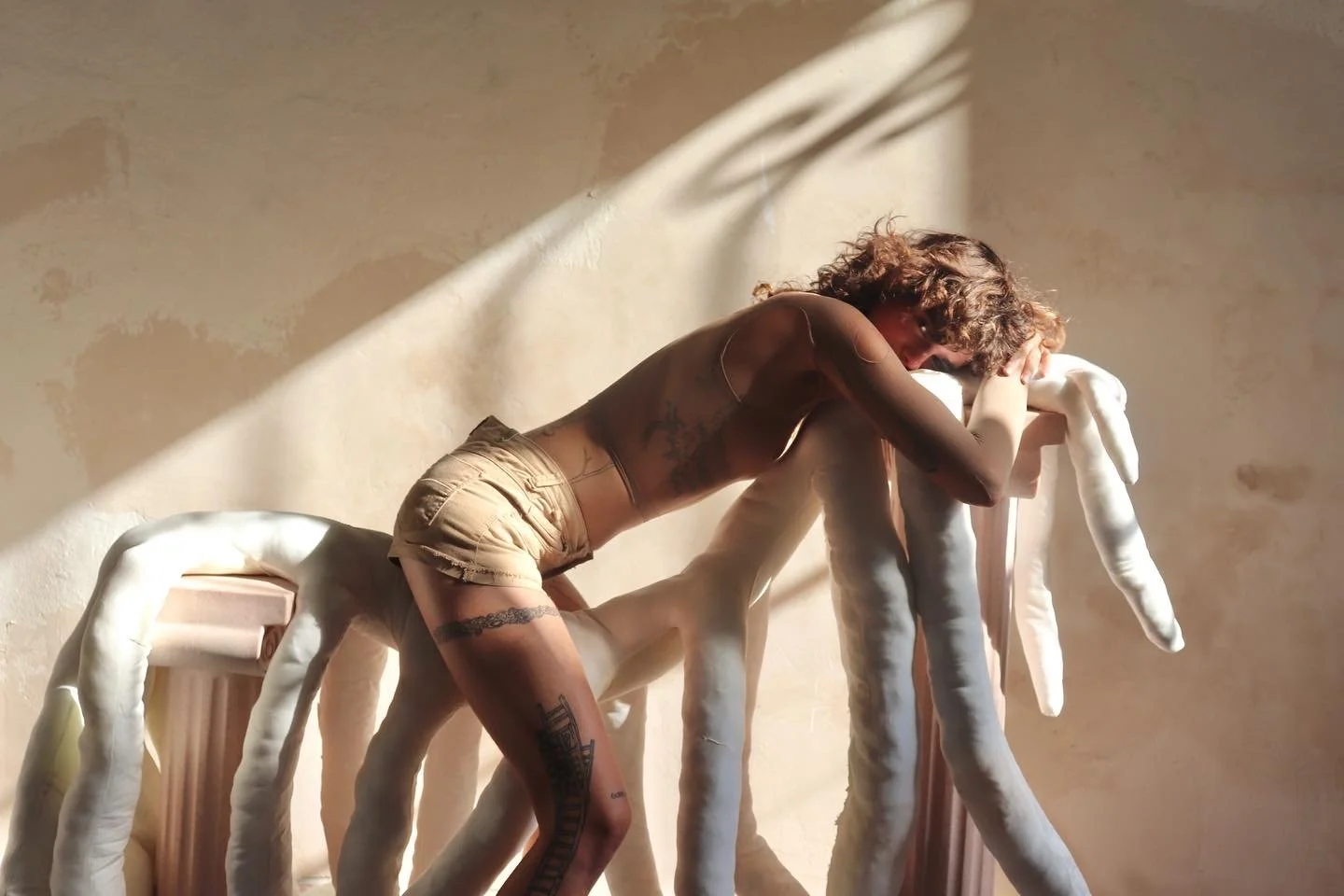Niccolò Quaresima
Niccolò Quaresima is a photographic artist from Italy with a strong understanding of its installative and performative potential. His creative process is intuitive and based on a time-based transformation of the photographic, physical and chemical matter. While centering his practice around queer states and communities, his research is highly rooted and driven by an experimental and metaphotographic approach: he’s indeed interested in analyzing the medium itself in relation to image formation in the contemporary condition. As a result, his work is a reflection of the hybridization of the camera with software-based tools and physical manipulations over chemicals-made photographs where time plays a different role giving photography a performative role.
Moving across different disciplines and mediums, your artistic practice is mainly rooted in photography, specifically in its sculptural and materic aspects. When did this turn to materic photography take place?
I wouldn’t speak of a “turn” but rather of an organic change towards a matter-centric photography. I’ve always been drawn to the darkroom and its processes, together with manual interventions over prints, such as the act of tearing them. Two-dimensionality has never convinced me whether matter, stratification, re-interpretation through manipulation, and aging have always been attractive to me. There's indeed something so fascinating about aplastic form that transforms over time and so does its memory - I feel and believe that paper is a material and support with a memory of its own, in the sense that it absorbs time whether plastic doesn’t.
What motivates your overall research? What are the topics it’s informed by?
I’ve been analyzing three aspects for a long time now, which are still in the background of all the narratives I bring to the foreground: the image, the medium and our queer generation and life. Plurality and diversity are what I mean with “queerness”. In a nutshell, the heart of the matter is the form of photography and its matter that my research focuses on, always informed by my lived experiences of queerness, belonging, community and spaces and places.
Nowadays it takes nothing to produce an image: it’s accessible, fast and pretty easy. What purists would call “true” photography doesn’t exist anymore. What do you think is the closest experience to photography today?
Image making has never been so quick, especially with the advent of AI-generated content. To answer this question I’d bring an example from my past works: “Generazione di Città”. This project is constituted by a series of plexiglass plates that report visual data of the warmth of Milan concrete on a summer day. Instead of using softwares to remotely calculate temperatures, I personally went on-site in pre-selected areas to measure the streets’ temperatures and create a heat map. This very performative act of taking the time to measure the temperature of concrete in this case is the closest experience to photography to me. From experience, to numerical data, to an image informed by those collected data, which is what we can see on these plates.
How familiar are you with data generated images? When do you use them as a tool for image making?
As you say, data generated images softwares serve as a tool to reach a particular result to me. As the photographic medium, they are tools rather than means to an end, which potential has to be taken advantage of rather than feared.
Are you working on anything new at the moment?
I’ve been working on a new project for a bit more than a year. Starting from my personal snapshots archive, I’ve developed a public work on vulnerability, loneliness, and beloning. In this work all the intimate becomes political, and the personal becomes public rather than universal. This archive of images gets manipulated after materialization into Polaroids, chemicals and acids. The point of it is giving an organic time to images to melt and re-solidify into another form, document transformation, queer states and ultimately self-formation.
interview ILARIA SPONDA
What to read next


















